The heartbreaking reality of life on a drought-stricken farm
The equation is simple. If it doesn’t rain before the end of next month, Kim Ewert and her family will no longer be able to survive on their NSW farm.
Things have gotten so bad that the mum-of-two has already had to make the heartbreaking decision to get rid of over 40 young cows she’s raised since birth.
“They were literally my pets, I raised them as part of my family,” Kim tells Be. “That really hurt having to do that. It would be like giving your dog away.
“Come end of September, if it does not rain, that will be it. We just cannot keep going like this.”
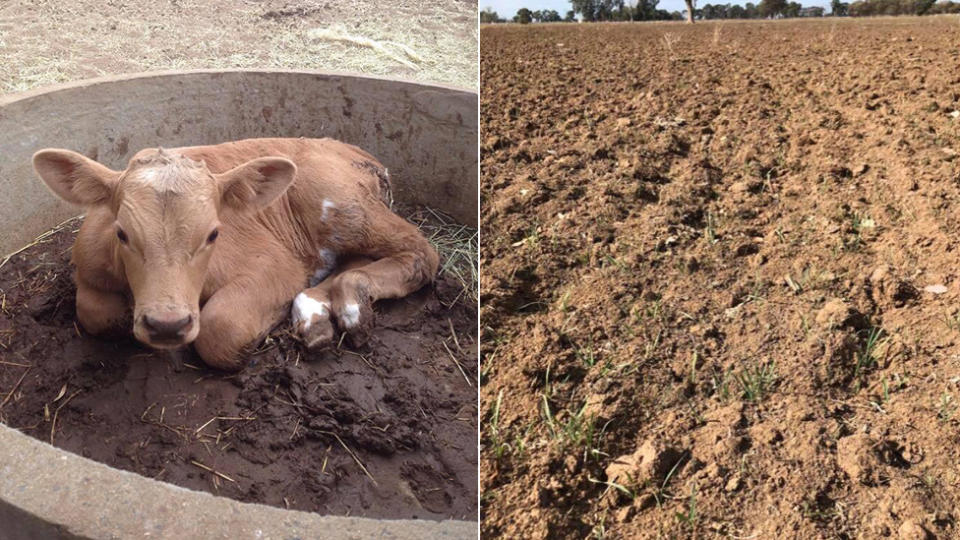
Kim and her partner Wayne moved to their small farm in Myrtle Park with Kim’s two children, and their stock, just over two years ago when it was “green and lush”.
However, by the end of last year, things had changed from what was once “beautiful miles of green grass” to nothing more than a dry wasteland, caught in the grips of the worst drought in 400 years.
As of August 8, 100 per cent of NSW was declared drought stricken, a horrible reality that QLD farmers have been dealing with for over six years already, and something Kim and her family now have to face head-on.
“For us it really hit home late last year that, ‘hang on our rains aren’t coming’,” Kim says, revealing the area has seen barely 40ml of rain in 2018.
“We’ve lost two sets of crops – late last year and then again in May – so we’re literally on dirt. We’ve previously been lucky in that we had clover that would grow all year round, but even that hasn’t grown this year.”
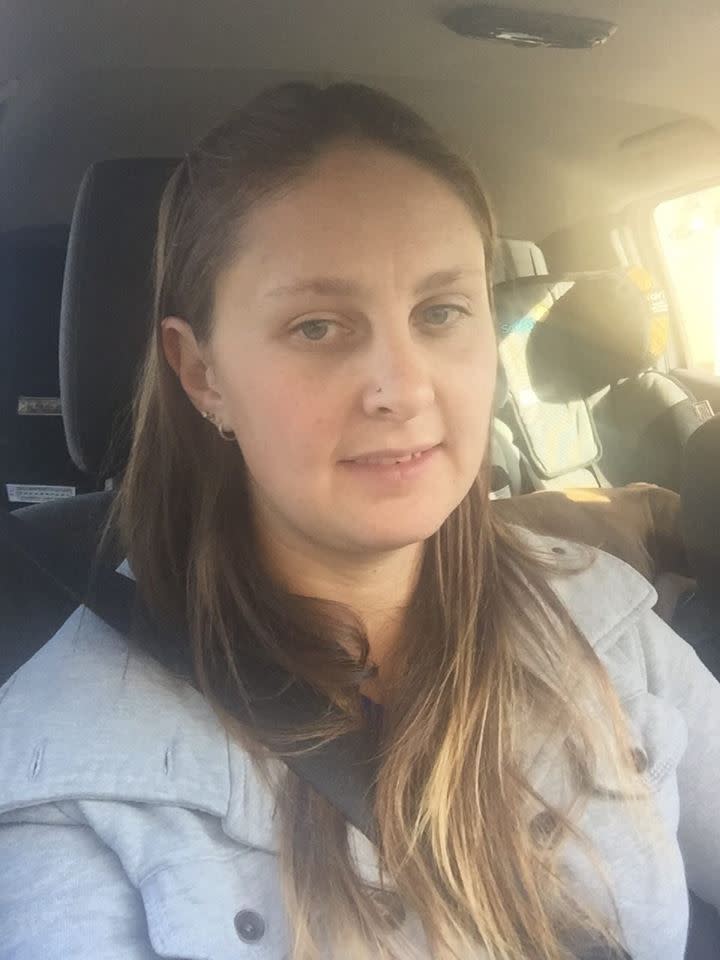
Having tried planting oats, barely, rye grass, and clover without success, Kim was faced with the gut-wrenching decision to trade 46 of her young heifers for feed for the rest of her 200-head stock.
She basically had to give away the family’s future, in order to survive the present.
“Before we came here we raised some stock to come with us. And that was some of what I had to get rid of the other day. So that was tough, they had done the move with us,” Kim recalls.
“I had to make a decision. We were running out of food and I couldn’t feed them. There is nothing worse than watching something fade away in a paddock.”
Kim says one of the most difficult things in what she describes as a situation worse than any horror movie, is seeing and hearing the animals asking for more food every single time she steps outside. And not having anything to give them.
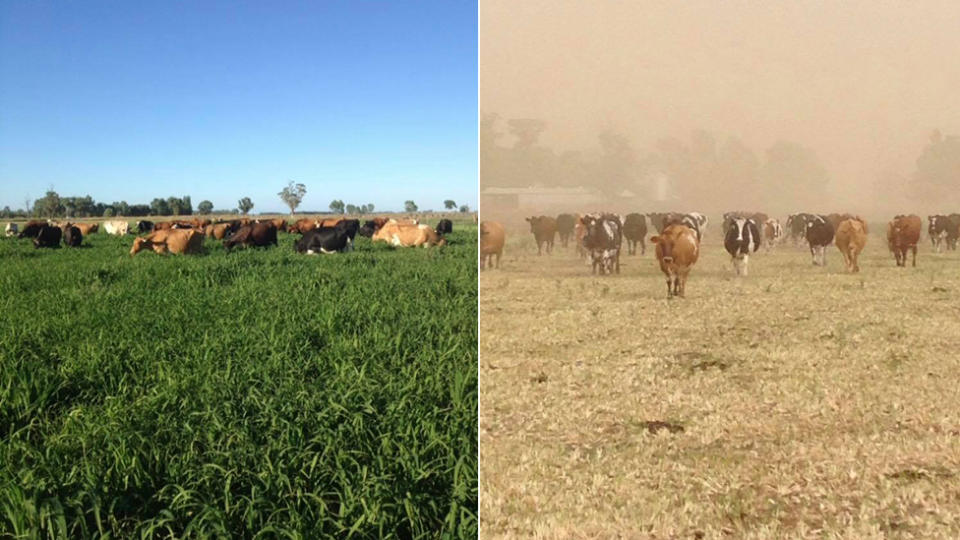
“Unless you are living it you truly do not understand. It is heartbreaking,” she says, tearing up. “Every time you go out all the animals are at the fence, asking if there is more food. And there is just nothing.
“People think buying a bale of hay will go far, but to put it into context, we are only a small farm and we go through a semi-trailer truck load of hay a week. And that is 100 per cent rationed, absolute bare minimum to survive.”
And it’s not only the animals that are running on empty. Family life on the farm is getting tougher and tougher, as tank water for the house officially ran out five weeks ago.
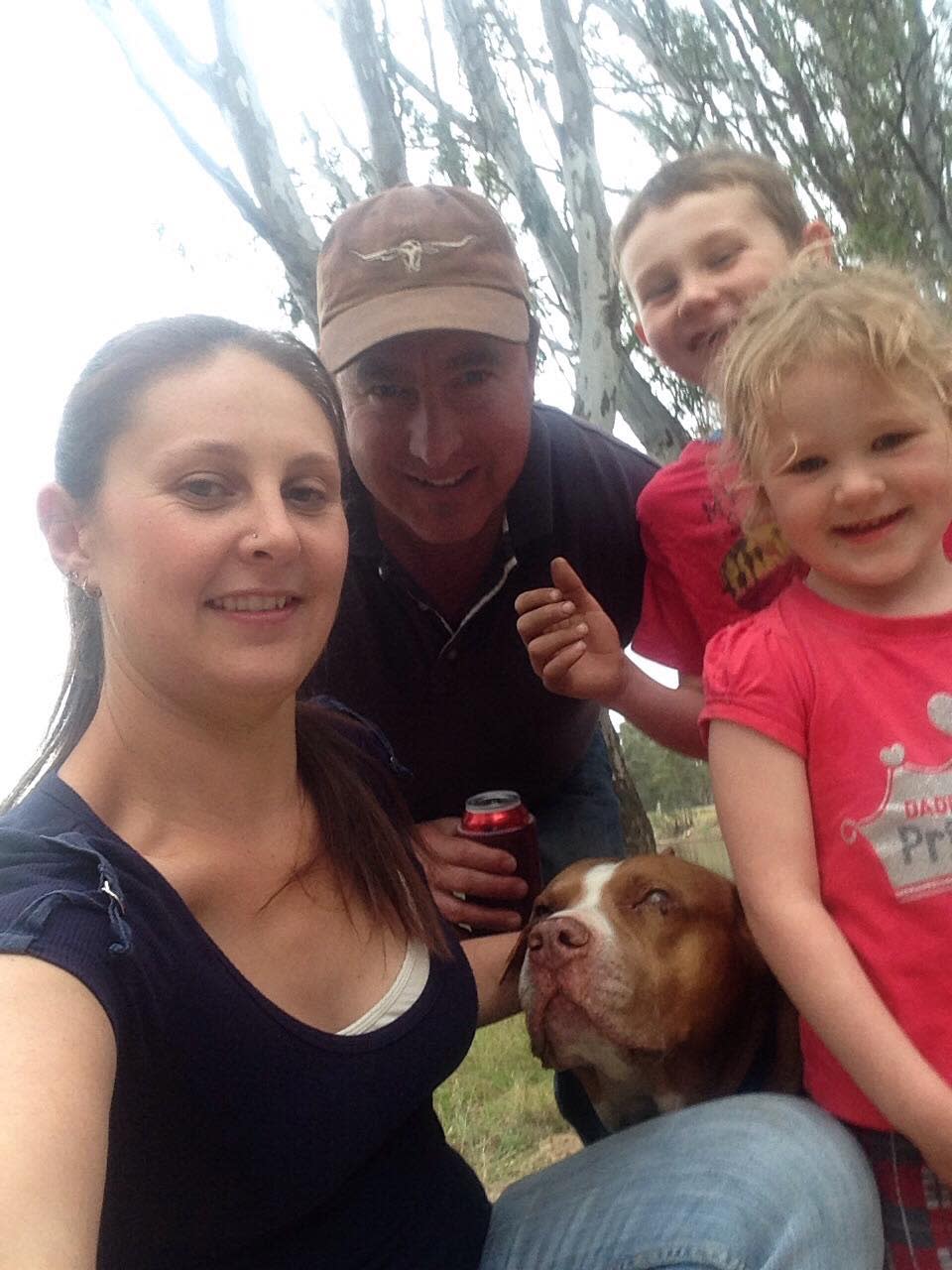
“At the moment we’re on zero water allocation. We have no permanent water attached to this property so we have to buy ‘temporary water’ every single time we need it,” Kim explains.
That means one-minute showers, shared baths for kids Obi, seven, and Amity, five, and driving 50km each-way to fill up another 1000l tank that will last them three to four days.
Realistically, the family would need $60,000 worth of water to be able to attempt to save the farm, and plant new crops.
With her days starting at 4am and not finishing before 11pm, sleep isn’t something Kim gets a lot of these days. She says her brain is “frazzled” constantly trying to work out what to do.
“You mostly just lay there, tossing and turning,” she says. “Even when I get to bed. You’re constantly worrying, if I did this, if we tried that, we could get some extra money. There just isn’t much sleep.”
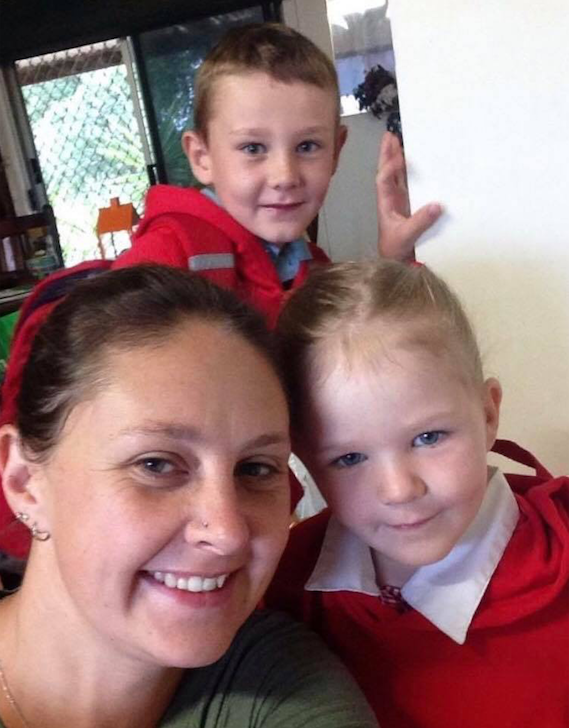
This year has truly been one hit after another for Kim, who was also diagnosed with a serious heart condition, which could see her require a pacemaker.
The illness often leads to Kim collapsing at home, meaning Wayne has had to give up truck driving – a way for the family to make income or work for feed – in order to keep an eye on Kim.
“I’m basically putting my health on the line at the moment, for the animals, and to make sure we get water,” Kim says.
“The worst feeling is coming inside after a long day and having the kids come up to you saying the tap is making that funny noise again, because the water is out.”


Kim knows there are farms out there that are worse off, without even the option of buying water, and she counts those blessings every day.
But for Kim’s small farm in Myrtle Park the reality is if it doesn’t rain soon, or they can’t afford enough water to grow crops, that’s the end of the line.
“We took a chance at the start of winter and we planted ¾ of the farm again to try and get through and just prayed for rain, but nothing came,” she says.
“Knowing what could be if it would just rain is the hardest part. Looking at everything and thinking if that just had a little bit of rain we’d be ok. Just knowing we could be ok, but we’re not.”
Kim has started a Gofundme in the hope of raising money to buy enough water to get them through.
Got a story tip? Send it to tips@yahoo7.com.au
Want more celebrity, entertainment and lifestyle news? Follow Be on Facebook, Twitter, Pinterest, Tumblr and Instagram.

 Yahoo Lifestyle
Yahoo Lifestyle 


